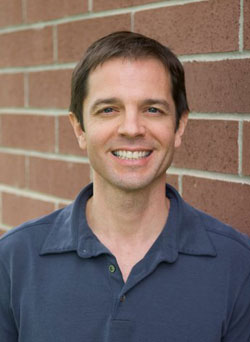Important Workshop Held at University of Utah

Bridging Religious and Sexual/Gender Differences
by Ron Schow and Yvette Zobel
An important —and perhaps unprecedented— one-day workshop on bridging religious and sexual/gender differences was held March 16, at the University of Utah School of Social Work. Sponsored by the Affirmative Therapist Guild of Utah, and lead by therapists Lee Beckstead and Jim Struve, the workshop had about 90 participants, including professional therapists from a variety of settings, as well as representatives from many of the LGBT/SSA support groups in the Intermountain area.
The workshop started by identifying guidelines for our discussions, with emphasis on the need for respectful discussion on LGBT/SSA issues, especially within the context of religious beliefs. About 20 small working groups representing various support and therapy perspectives were each asked to produce a list of three possible interventions. As each group presented its interventions, we could all start to see some common ground emerge around respecting differences.
The workshop leaders discussed how we can become polarized, then used a physical demonstration to show how we can move from opposition to building bridges of understanding. We all partnered up to practice the exercise. One partner would go straight towards the other almost as if attacking him or her. This represented the way we feel when someone “comes at us” with an opposing view. The person being “attacked” could stand his/her ground, push back, or avoid contact. The leaders then demonstrated a better way: Respond to the person’s momentum toward you by turning with them, perhaps walking with them for a time, then turning back to the direction you were originally going. This represented the concept that it is possible to turn in a friendly way, try to understand the opposing view, but then continue to move thoughtfully in ones’ own direction.
This exercise was followed by a “fishbowl discussion.” focused on the question, “Can a person be in a gay relationship and still be a worthy and righteous member of the LDS Church?” A volunteer shared her reasons for answering “No,” and another shared her reasons for saying “Yes.” As each one told her point of view, the other used active listening skills to fully understand the other point of view. Then, with the help of a moderator, they looked for common ground —a bridge— between their perspectives. In the end, there were still differences of opinion, but they also found some common ground.
A final discussion of the whole group demonstrated some of the significant difference that still hold (e.g., an almost exclusive emphasis for some on sex as the prevailing standard of righteousness), but it also showed that people and groups that typically have talked past each other can, with training and goodwill, have mutually respectful conversations. With that, we left this well-managed workshop with much to ponder—and looking forward to future opportunities to practice our new skills to “build bridges” together.